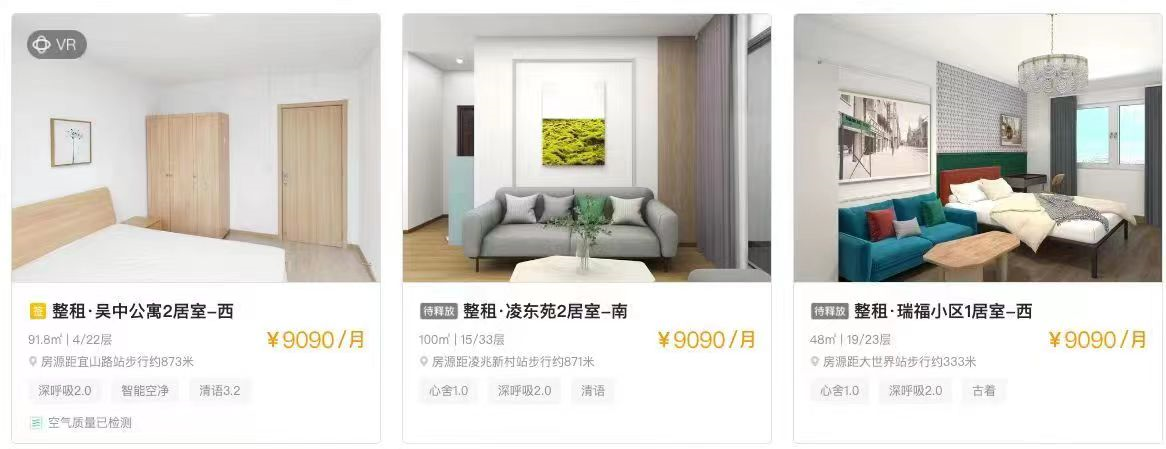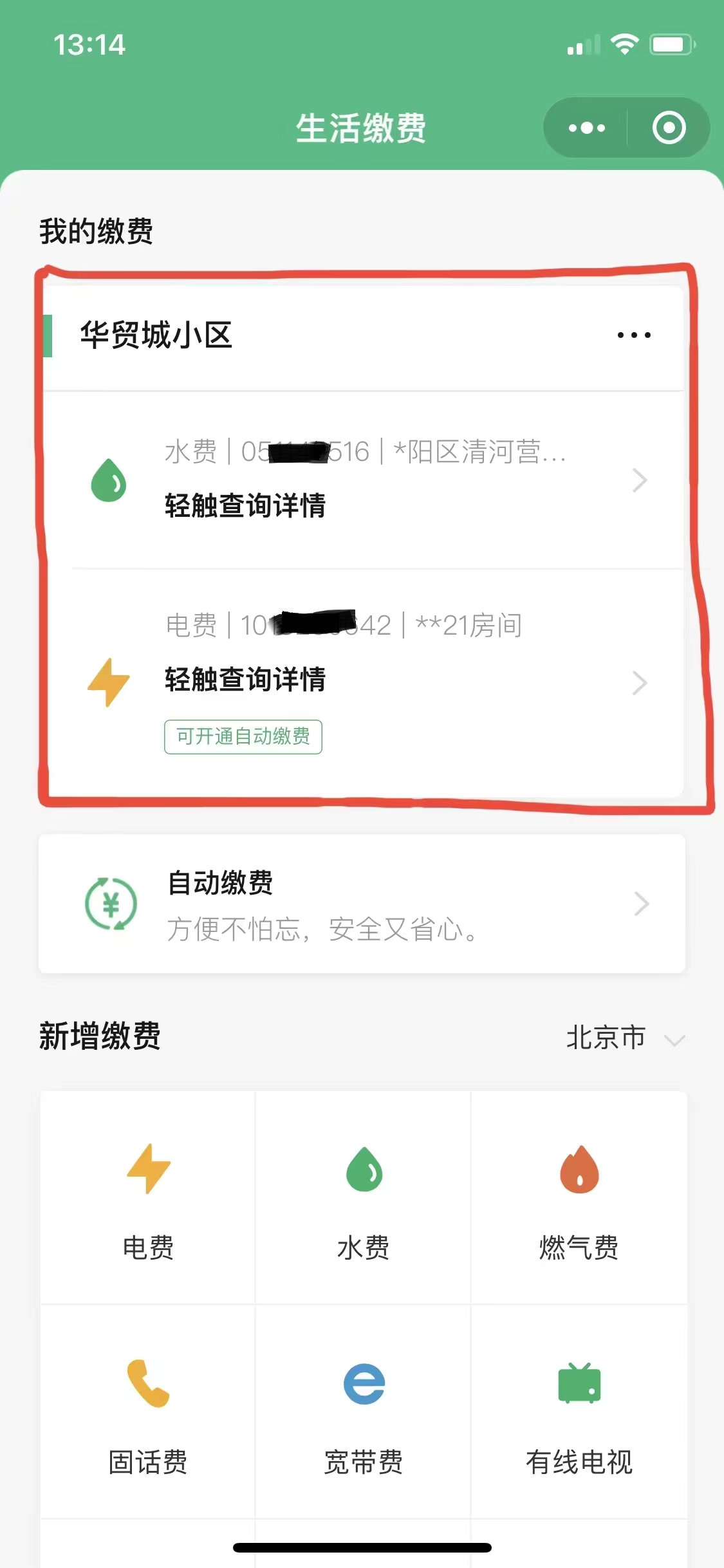Housing in China: A Guide to Apartment Hunting in China (2022)
July 25, 2022
Finding an apartment in China can be a daunting task for everyone, not just expats. Apartment hunting in China seems very scary simply because of all the horror stories: greedy landlords, astronomical agency fees, quarterly rent payments, and early evictions without notice.
In such instances, there may be more to the story, so try not to let it affect you too deeply. (Easier said than done, we know!) Although such things may still occur, there are plenty of reliable, secure ways to get a roof over your head.
We hope the following article will help ease the stress of finding an apartment in China to some extent.
Can a Foreigner Rent an Apartment in China?
How Much is the Average Rent in China?
What do I Need to Know Before Apartment Hunting?
Ziroom (自如)
Rental Agencies in China
Employer-Provided Housing in China for Foreigners
Chinese Apartment Hunting Sites
Important Things to Do Once You Found an Apartment in China
Can a Foreigner Rent an Apartment in China?
Yes, foreigners can rent an apartment in China.
In fact, many landlords like to rent out to foreigners because, to put it bluntly, foreigners earn way more than locals on average. Consequently, foreigners make for very reliable tenants especially as they shouldn’t have any issues paying rent on time.
How Much is the Average Rent in China?
The average rent in China depends on the city you are looking to reside in. The district within a city and the size of the apartment also have a significant effect on prices.
A decent-sized apartment (85-95m²) in Shanghai could be anywhere between 7500-12000RMB per month, while in Beijing the same size apartment is slightly cheaper (6500-11000RMB monthly), and cheaper still in Shenzhen.
If you decide to go to a second-tier city, such as Chengdu, Chongqing, Tianjin, etc., you could get a similar place for around 5000-7000RMB per month.
One thing we can guarantee is that sometimes the prices will not make sense. Like the one in this image…

What do I Need to Know Before Apartment Hunting?
Renting an apartment in China is relatively easy as there always seems to be plenty of choice.
Unfortunately, there are huge costs involved at the beginning of the process, depending on what channel you use to find your house.
• The deposit is equal to one month’s rent. You will undoubtedly need to pay a deposit (押金) no matter what avenue you use to find your apartment in China.
• Rent is often paid quarterly. Be prepared to pay three months of rent at a time (plus the agency fee and the deposit, if it is your first payment). This can be a substantial amount, so it is important to be prepared financially. This set up might be negotiable, depending on your landlord or rental agency, but quarterly seems to be the norm.
• Make sure to understand how the square meterage (m²) works. Unless you want to be shocked by the size of a place, try to learn to figure out this measurement. All listings are in square meters.
• Make sure to ask about public transport. If you are not able to communicate in Mandarin, using buses and taxis can become quite tough. Being close to a subway station will provide you with an easy option to get around.
• You must ask for help from a local friend or a fellow expat with local know-how. No matter how book-smart you may think you are, finding a place to live requires experience. There are a lot of unscrupulous agents out there, so having someone familiar with the process will help protect you from scams.
• Subletting is an option, but caution is advised. If you are looking to sublet an apartment (or a room), the landlord must agree to it. If the landlord isn’t aware or doesn’t agree to the sublet, they have the right to evict you without any notice, and your money will not be returned.
• Hutong (胡同) houses and lane/alley houses aren’t suitable for everyone. Hutong houses are those ancient-looking houses located in one of many little alleys in the heart of Beijing (and some other cities in China). It’s what some expats call a “true Chinese experience”. You will be surrounded by Chinese families who often speak little to no English. However, these neighbors can also be incredibly friendly, especially if you are willing to have a drink with them. The biggest issues with many hutong houses are the poor drainage from the toilet (if you have one indoors at all), and lack of insulation for the winter.
• Living out in the sticks is an option for bigger families. The further away from the city center you go, the bigger place you can rent for cheaper. With the excellent public transportation in China, this can be a practical, economical option for families looking for more space.
Ziroom (自如)
If you are looking for convenience, Ziroom is a great way to secure your abode.
Ziroom provides apartment listings in many of the major Chinese cities including Beijing, Shanghai, Guangzhou, Shenzhen, Hangzhou, Nanjing, Chengdu, Tianjin, and Wuhan.
With Ziroom, you will get an apartment that is pretty accurate to the photos.
Another benefit is that you can choose if you’d like to pay your rent monthly, quarterly, or annually. The agency fee is also spread over nine months rather than taken upfront. Be aware though, you have to commit to a minimum contract of one year. If you choose to renew, the contract extension can be designed to fit your needs.
Ziroom also provides a WeChat contact who you can communicate with in case of emergencies. That contact can either use the Ziroom app to help with what you need (such as booking a cleaner or repair) or guide you on how to use the app, which luckily does have an English version.
One drawback (to some, that is) is that the apartments are furnished in a way which looks like IKEA threw up on them.
One extra perk of Ziroom is that they provide a cleaner for you once a month, for free. You can pay for any extra cleanings if you'd like.
Finally, while Ziroom lists full apartments, it also has listings for a single room in a shared apartment, in case you can’t quite afford an apartment to yourself.
You can also use real estate competitors Lianjia (链家) or Wo Ai Wo Jia (我爱我家) if you cannot find what you are looking for on Ziroom. However, Ziroom is, in my opinion, the best option among the major housing companies.
Rental Agencies in China
Finding an apartment or house in China via a rental agent can be an eye-opening experience.
With the rise of Ziroom, many independent agents have struggled to keep hold of many of their listings, especially in high-rises in Beijing and Shanghai. It seems that most agents nowadays tend to list hutong houses.
Once one agent lists a hutong house, all agents seem to list it. Therefore, as a house hunter in China, it is ultimately up to you to decide which agent you want to work with.
Agents in lower-tier cities have more listings as the “big boy agencies” mentioned above tend to concentrate on the big cities. However, regardless of size, all agents expect a month’s rent as payment for their services.
Employer-Provided Housing in China for Foreigners
With many employment opportunities, an apartment might be provided as an employee benefit by the company you will work for in China.
Many major companies provide a fully equipped apartment or a housing stipend for their employees.
Staying in Employer-provided accommodation in China:
Pros:
- No need to apartment hunt or worry about fees upfront (or maybe at all)
- Personal space from day one
- The company (usually) takes care of all issues as and when they come up
Cons:
- You will be located close to work, which may be in the outskirts of the city
- Accommodation may fall short of your expectations
Housing Stipend for Finding your Own Apartment in China:
Pros:
- Housing stipend likely to be enough to cover an average apartment for your city
- You get to see the apartment before agreeing to rent it
Cons:
- You will need to pay a lump sum upfront, usually five months of rent - one month as a deposit, one as an agency fee, and three months to cover the first quarter of the yearly contract
- Need to communicate with the agency or landlord, in Mandarin Chinese
Chinese Apartment Hunting Sites
These websites are a good place to start your search for an apartment in China:
A lot of the adverts on these platforms are placed by the aforementioned smaller agents. If you are looking for a short-term place, the above websites will provide plenty of options.
Note: Keep your wits about you on these sites. Sift through the junk posts and do not pay any money to anyone upfront.
Important Things to Do Once You Found an Apartment in China
• Ask about the chain of command. Something will undoubtedly go wrong at some point. This is just a matter of course. When it does, you need to know who to contact to get the fastest resolution.
• You must take pictures of any pre-existing damage to the apartment and furniture, so that you aren’t charged for it and lose money from your deposit.**
• Ask about utilities and the way they work. Learn where the electricity meter is and have the agent or landlord input the details into the utilities part of either WeChat or Alipay. Be sure to find out how and where to recharge gas (if applicable) and the way the water bill works.

• You must ask about the building managers and the local police station. Some communities require residents to come to the main office to pay their water bill or to book a handyman for repairs. As for the police station, you will need to go there to register for the residency permit.
Whichever way you approach apartment hunting in China, you will likely encounter the typical house-hunting stress, and then some. Whether your company sets you up with accommodation, or if you choose to go with a rental agent, we hope this article will help make the apartment-hunting process in China easier and smooth for you. We hope you find your dream apartment soon!
About the Author
Mehmet has been a struggler, learner, and maybe one day a solid grasper of the Chinese language and country thanks to his decade plus spent in the Middle Kingdom.
